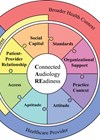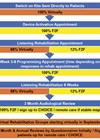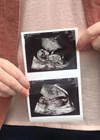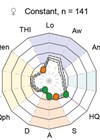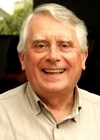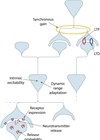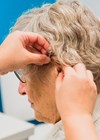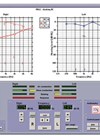Audiology features
Are you ready? How audiologists’ readiness for change relates to the implementation of remote care
Are we ready to deliver remote care? A question many of us have asked ourselves over the last year. Danielle Glista (Associate Professor, Western University) and colleagues talk through a systematic approach to implementing remote audiological care and suggest gaps...
Development and review of a blended service in response to COVID-19
The COVID-19 pandemic has required healthcare services globally to show both resilience and ingenuity in redesigning services to meet the ever-changing needs of our patients. We hear about the redevelopment of clinical pathways within an hearing implant service, and the...
Practice and pregnancy during COVID-19
The global COVID-19 pandemic has had a significant impact on each of us, both personally and professionally. We have had to adapt the way we live and work and find our ‘new normal’. Francesca Lynch, Senior Paediatric Audiologist at Guy’s...
On the influence of sex on tinnitus burden and its phenotypes
One important aspect of the new paradigm in tinnitus research is to question basic assumptions. What associations does the sex of a person have with their experience of and reaction to tinnitus? Chris Cederroth raises the question and tells us...
In conversation with Professor Jos Eggermont
Having known Jos for many years, I jumped at the opportunity to catch up with him for our Nov/Dec 2020 series of tinnitus items. My questions reached him during lockdown, and he was enjoying the chance to get on top...
The benefits of mindfulness for tinnitus
Mindfulness-based psychological therapy for tinnitus has, in recent times, been the subject of well-designed clinical research that demonstrated impressive benefits. Dr Liz Marks guides us through this field, and advocates for better access and availability of these techniques. Mindfulness can...
Diagnosing and managing somatic tinnitus
Interactions between auditory and somatosensory pathways can lead to interesting tinnitus experiences which can be very bothersome. Dr Sarah Michiels describes her pioneering work in this area, and the possibilities of physiotherapy based therapy. Background Somatic (also called somatosensory) tinnitus...
The role of prediction and gain in tinnitus
Dr Will Sedley is a Clinical Academic Neurologist who has done groundbreaking work in the field of tinnitus mechanisms. Here, he introduces and explains the concepts of prediction and of gain as they relate to troublesome tinnitus. This article focuses...
Barriers to cochlear implantation in low resource settings
The benefits of early detection and rehabilitation of hearing loss in children, especially through cochlear implantation, are unequivocal. However, access to these valuable resources is far from equal and universal. Identifying the barriers is the first major step in addressing...
Innovating around access to hearing services during the pandemic
COVID-19 has also presented its challenges to hearing healthcare providers and to the industry and, similarly, called for innovation and creativity. Dr Bromwich describes how these sectors are rising to the challenge. The reality of COVID-19 has been a challenging...
Moving forward for better communication for the Deaf and hard of hearing – Wavefront Centre
Now more than ever, guaranteeing accessibility and inclusion is a vital need for people of all abilities. The Wavefront Centre for Communication Accessibility in Vancouver, BC, is a model on to how to effectively address these issues and serve the...
In conversation with Jeff Small and Navid Shahnaz
The impact of COVID-19 has been felt on all levels of society and deeply affected our lives. It has challenged us to find new ways of carrying on with our activities at home, work, and school. Jeff Small, Director and...


